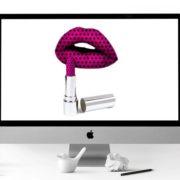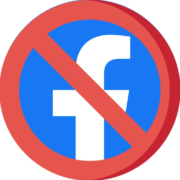Connected TVs, Makeup, Boycotts, and Conspiracies
This week we’re reading more about the changes to buyer behavior. Once it was suggested this pandemic may run 18 months before we get back to normal, it didn’t take a genius to think “what normal?” The more time we spend online, the more demands we make of the tools we use. This week we share a survey about connected devices and we look at how one giant consumer brand is leaning into the new environment. We look into what it would mean to boycott an ad platform, and the challenges of working with people versus robots. Thought provoking stuff! Enjoy.
80% of USA TV Households Have at Least One Connected TV Device
“…80% of U.S. TV households have at least one Internet-connected TVdevice, including connected Smart TVs, stand-alone streaming devices (like Roku, AmazonFire TV stick or set-top box, Chromecast, or Apple TV), connected video game systems,and/or connected Blu-ray players.”
We’re socially distant yet closer than ever to our internet connected devices. Makes sense, and as marketers let’s take advantage of it. How do we do it? Start with getting your video ads in order. These can be delivered right to your audience of customers and prospects matched through services like Liveramp. The future is niche. There will be a lot of tools available to make advertising easier, but it all starts with your lists. Get lists.
L’Oréal glimpses its digital future amid pandemic
“The coronavirus lockdowns have sparked broad changes to how women discover and shop for beauty products by pushing more activity online, especially among older demographics who were previously wary, according to L’Oréal’s chief digital officer.
‘In ecommerce, we achieved in eight weeks what it would have otherwise taken us three years to do.'”
The big brands are watching their distribution channels dry up and wondering if it will stick. We’ve been telling everyone who listens that brands need better tools for helping their customers. They can still be deployed through vendors, but ultimately the customer is going to demand every brand is easier to access online. Yes, even business to business brands.
As Facebook boycott calls increase, DTC brands get stuck in the middle
“Connie Mattise considered rounding up other like-minded brands and making a pledge. ‘We were going into 2020 not going to spend a single penny on digital ads with Facebook and Instagram,’ she said to Modern Retail in an interview last month.
While that’s remained true, the company never ended up making a public pledge about its stand. It didn’t want to spend on Facebook and realized it didn’t have to — so it didn’t. ‘Maybe we shouldn’t make that a thing,” Matisse reasoned. “Something like 80% of our web traffic comes from Instagram.’ That is, why go out of the way to bite the hand that feeds the company?”
It’s hard to be true to your beliefs. We know that and while Google and Facebook’s ad revenue are taking a slight dip, the idea that they’ll walk back from their algorithms prioritzing engagement is even harder. Internally we have a love hate relationship with Facebook’s algorithm. It can do amazing things but part of the reason why is because it tickles users brains in a not so great way. None of our brands have asked us to skip FB, but we’re planning. Just in case.
 ‘I love you my beautiful #QAnon!’: When lifestyle influencers also peddle conspiracy theories
‘I love you my beautiful #QAnon!’: When lifestyle influencers also peddle conspiracy theories
“Brands should be more aware of what their influencers are posting on Instagram, said James Nord, the founder of Fohr.
‘These people are going to be spokespeople and you really need to understand them, and vice versa,’ said Nord. ‘Not only is the brand associating with that person, but they’re allowing them to be a megaphone for their brand. That opens brands up to a lot of risk.’
‘Anyone peddling conspiracy theories is someone we would not suggest to a brand,’ said Nord, who noted that Fohr contracts include ‘morality clauses’ that allow brands or influencers to end contracts if they disagree with statements by the other party.”
The algorithms aren’t the only ones learning controversy gets eyeballs. If you’re sponsoring brand ambassadors to spread the word, what exactly are they saying out there? For some startups working on brand awareness, using 1,000 brand ambassadors may be a shortcut, but it won’t be easy. As a matter of fact, it sounds like a nightmare!






